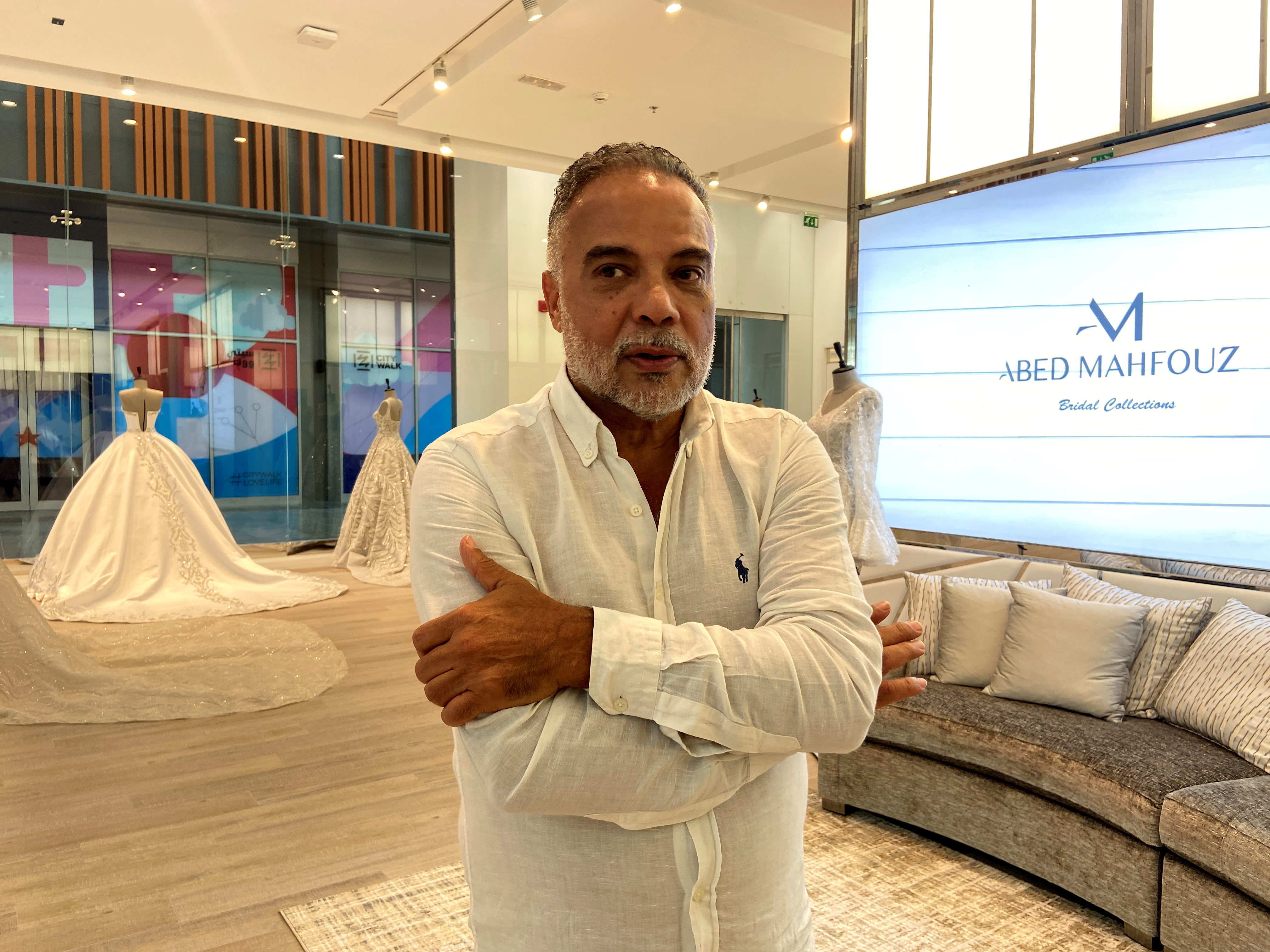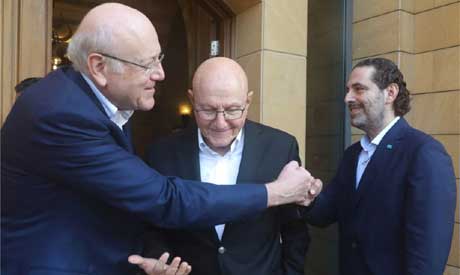الحل ليس بالانتخابات المبكرة وليس بالصلاحيات الاستثنائية وان يكن لا ضرر من حصولهما. الحلّ قبل كل شيء هو في تصويب السياسة العامة …

DUBAI, (Reuters) by Lisa Barrington Raya Jalabi - Until a few months ago, 32-year-old Michelle Chaaya was a human resources professional at a multinational firm in Lebanon. Now she works as a bartender in Dubai, sending cash to her family back home where a financial crisis has left many destitute. The United Arab Emirates has long been a destination for Lebanese businesses and professionals, propelled by instability in their tiny country. Those who like Chaaya came to the UAE in the past year are leaving behind a Lebanon that was already in dire straits before a huge chemical blast tore through Beirut in August, exacerbating a financial meltdown that has seen the currency collapse and jobs vanish. "After the explosion we felt like we were hopeless. So the first opportunity to travel outside Lebanon, I took it,” Chaaya said.
Fadi Iskanderani, one of Lebanon's few paediatric surgeons who this month moved to Dubai, said the plummeting currency meant his wages had fallen by around 95% for the same workload. Having trained overseas, he moved back to help rebuild his country after years of civil war. The decision to leave was heart-wrenching. Lebanon's crisis has propelled more than half the population into poverty, locked depositors out of bank accounts and worsened shortages of basic goods. The country's prized education and medical sectors have seen talent leave in droves: around 1,200 doctors are estimated to have left Lebanon. read more

by reuters -- Lebanese businessman Najib Mikati secured enough votes in parliamentary consultations on Monday to be designated the next prime minister, and now faces the difficult challenge of forming a viable government to tackle a financial crisis. Mikati has been prime minister twice before and, unlike many Lebanese leaders, does not represent a political bloc or hail from a dynasty. He received 72 votes out of a total of 118 members of parliament. Mikati won the votes of the most prominent blocs, including the Future bloc, Hezbollah's bloc, the Progressive Socialist Party bloc, and Parliament Speaker Nabih Berri's bloc. But the Free Patriotic Movement (FPM) bloc, which is the political group affiliated with Aoun, refrained from nominating anyone as the FPM and Mikati failed to see eye-to-eye on the 2011 government’s political performance. Like previous nominee Saad al-Hariri, he must navigate the sectarian, power-sharing structure and secure agreement on a cabinet equipped to address the financial meltdown in Lebanon, one of the world's most heavily indebted states. "I don't have a magic wand and I can't work miracles," Mikati said after his nomination, but added that he had been studying the situation and had "the necessary international guarantees".
Mikati is the third person to be nominated since Hassan Diab's government resigned after an explosion at Beirut's port area on Aug. 4 last year that killed more than 200 people and flattened large areas of the city. Diab's government has stayed on in a caretaker capacity since then, but Lebanon's currency has collapsed, jobs have vanished and banks have frozen accounts in the country's worst crisis since the 1975-90 civil war. Mikati said he was confident he could form a government, and its first priority would be to implement a reform plan by former colonial power France. The French roadmap envisioned a government of specialists capable of implementing reforms and engaging the International Monetary Fund.
By Katerina Hakmeh — beirut.com — A documentary on Lebanon by Australian-Lebanese filmmaker, journalist, and entrepreneur Daizy Gedeon has received the …
Khazen History


Historical Feature:
Churches and Monasteries of the Khazen family

St. Anthony of Padua Church in Ballouneh
Mar Abda Church in Bakaatit Kanaan
Saint Michael Church in Bkaatouta
Saint Therese Church in Qolayaat
Saint Simeon Stylites (مار سمعان العامودي) Church In Ajaltoun
Virgin Mary Church (سيدة المعونات) in Sheilé
Assumption of Mary Church in Ballouneh
1 - The sword of the Maronite Prince
2 - LES KHAZEN CONSULS DE FRANCE
3 - LES MARONITES & LES KHAZEN
4 - LES MAAN & LES KHAZEN
5 - ORIGINE DE LA FAMILLE
Population Movements to Keserwan - The Khazens and The Maans
ما جاء عن الثورة في المقاطعة الكسروانية
ثورة أهالي كسروان على المشايخ الخوازنة وأسبابها
Origins of the "Prince of Maronite" Title
Growing diversity: the Khazin sheiks and the clergy in the first decades of the 18th century
Historical Members:
Barbar Beik El Khazen [English]
Patriach Toubia Kaiss El Khazen(Biography & Life Part1 Part2) (Arabic)
Patriach Youssef Dargham El Khazen (Cont'd)
Cheikh Bishara Jafal El Khazen
Patriarch Youssef Raji El Khazen
The Martyrs Cheikh Philippe & Cheikh Farid El Khazen
Cheikh Nawfal El Khazen (Consul De France)
Cheikh Hossun El Khazen (Consul De France)
Cheikh Abou-Nawfal El Khazen (Consul De France)
Cheikh Francis Abee Nader & his son Yousef
Cheikh Abou-Kanso El Khazen (Consul De France)
Cheikh Abou Nader El Khazen
Cheikh Chafic El Khazen
Cheikh Keserwan El Khazen
Cheikh Serhal El Khazen [English]
Cheikh Rafiq El Khazen [English]
Cheikh Hanna El Khazen
Cheikha Arzi El Khazen
Marie El Khazen